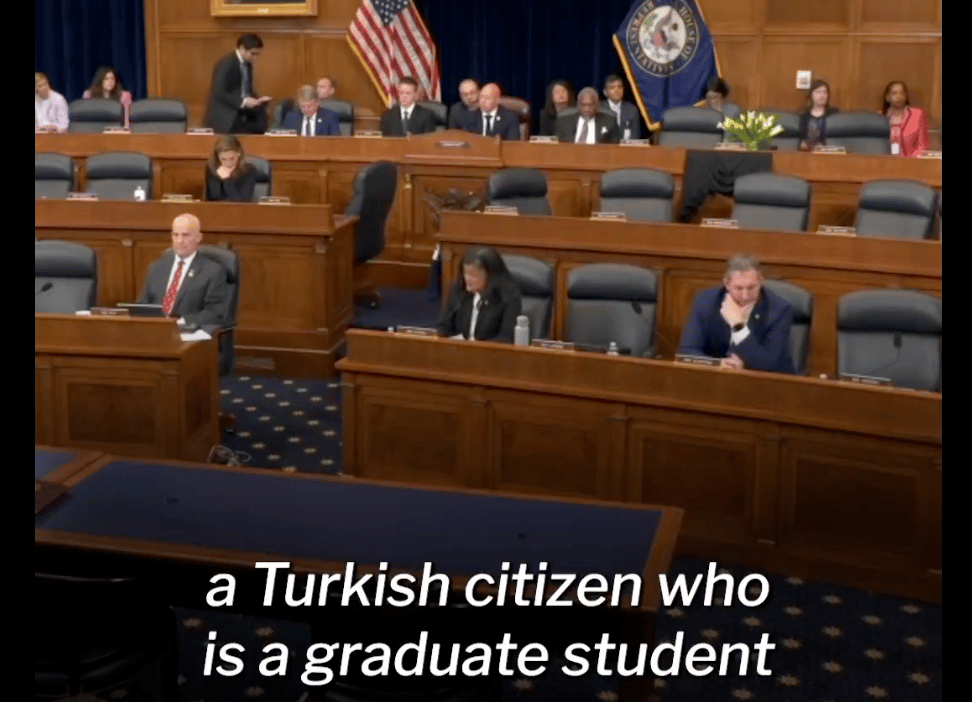The Chilling Effect of Visa Revocations on Free Speech: A Case Study of Rümeysa Öztürk
5/23/20253 min read


The Chilling Effect of Visa Revocations on Free Speech: A Case Study of Rümeysa Öztürk
Introduction
In a world where the digital age amplifies voices and ideas across borders, the recent revocation of a student visa for Rümeysa Öztürk, a Turkish graduate student at Tufts University, has sparked a fierce debate about the limits of free speech and the discretionary power of government officials. This case, highlighted by Rep. Pramila Jayapal on X, underscores a growing tension between national security policies and the fundamental right to express dissenting opinions. As we delve into this controversy, we must ask: At what cost do we safeguard our borders, and how far should the government go in silencing voices that challenge the status quo?
The Incident: A Student’s Op-Ed Sparks Controversy
On March 21, 2025, the State Department, under Secretary Marco Rubio, approved the revocation of Öztürk’s student visa shortly after she published an op-ed critical of U.S. foreign policy. The backlash was swift, with Jayapal accusing Rubio of overstepping his authority, arguing that Öztürk’s detention—following her being “snatched off the street” by armed officers—was a disproportionate response to her exercise of free speech. This incident is part of a broader trend where the Trump administration has targeted international students involved in pro-Palestinian protests, revoking hundreds of visas under the guise of national security.
The Legal and Ethical Dilemma
The authority to revoke visas is rooted in 8 U.S.C. 1155, which grants the Secretary of Homeland Security broad discretionary power to rescind approved petitions. However, this power has been contentious, especially when applied to cases like Öztürk’s, where the connection between her op-ed and a national security threat is tenuous at best. Critics argue that such actions chill free speech, not just for international students but for all individuals who fear repercussions for expressing dissenting views. The Supreme Court’s historical deference to the executive branch on immigration matters further complicates the issue, leaving many to question whether constitutional protections extend to non-citizens on U.S. soil.
Public Reaction and Political Divide
The public and political response to Öztürk’s case has been polarized. Supporters of Rubio’s actions argue that visas are privileges, not rights, and that the government has a duty to protect national interests. Opponents, however, see this as a dangerous precedent that undermines the very principles of free expression that the U.S. champions. A survey by The Associated Press-NORC Center for Public Affairs Research revealed that a significant portion of Americans oppose such visa revocations, indicating a disconnect between policy and public sentiment.
The Broader Implications
This case is not isolated. It reflects a broader trend of using immigration policies as tools to suppress dissent, particularly among international students who are often at the forefront of social and political movements. The chilling effect of such actions is palpable, with many students reportedly keeping a low profile to avoid scrutiny. This raises critical questions about the role of educational institutions as spaces for open dialogue and the impact of political climates on academic freedom.
Conclusion
The revocation of Rümeysa Öztürk’s visa is more than a legal dispute; it’s a litmus test for the state of free speech in America. As we navigate these turbulent waters, we must consider the long-term implications of prioritizing security over liberty. The balance between protecting national interests and upholding constitutional rights is delicate, and cases like Öztürk’s force us to confront the uncomfortable reality that our actions today shape the freedoms of tomorrow.
Thought-Provoking Questions
Should the government have the authority to revoke visas based on the content of an individual’s speech, even if it’s critical of U.S. policy?
How far should national security concerns extend into the realm of academic freedom and free expression?
What role do international students play in shaping political discourse, and how should their rights be protected?
This blog post, tailored for boncopia.com’s Social Influence category under the Social Issues and Politics subcategory, aims to engage readers by highlighting a pressing contemporary issue that intersects law, politics, and human rights. The case of Rümeysa Öztürk serves as a compelling entry point into a broader discussion about the limits of free speech and the discretionary power of government officials in an increasingly polarized world.
hello@boncopia.com
+13286036419
© 2025. All rights reserved.